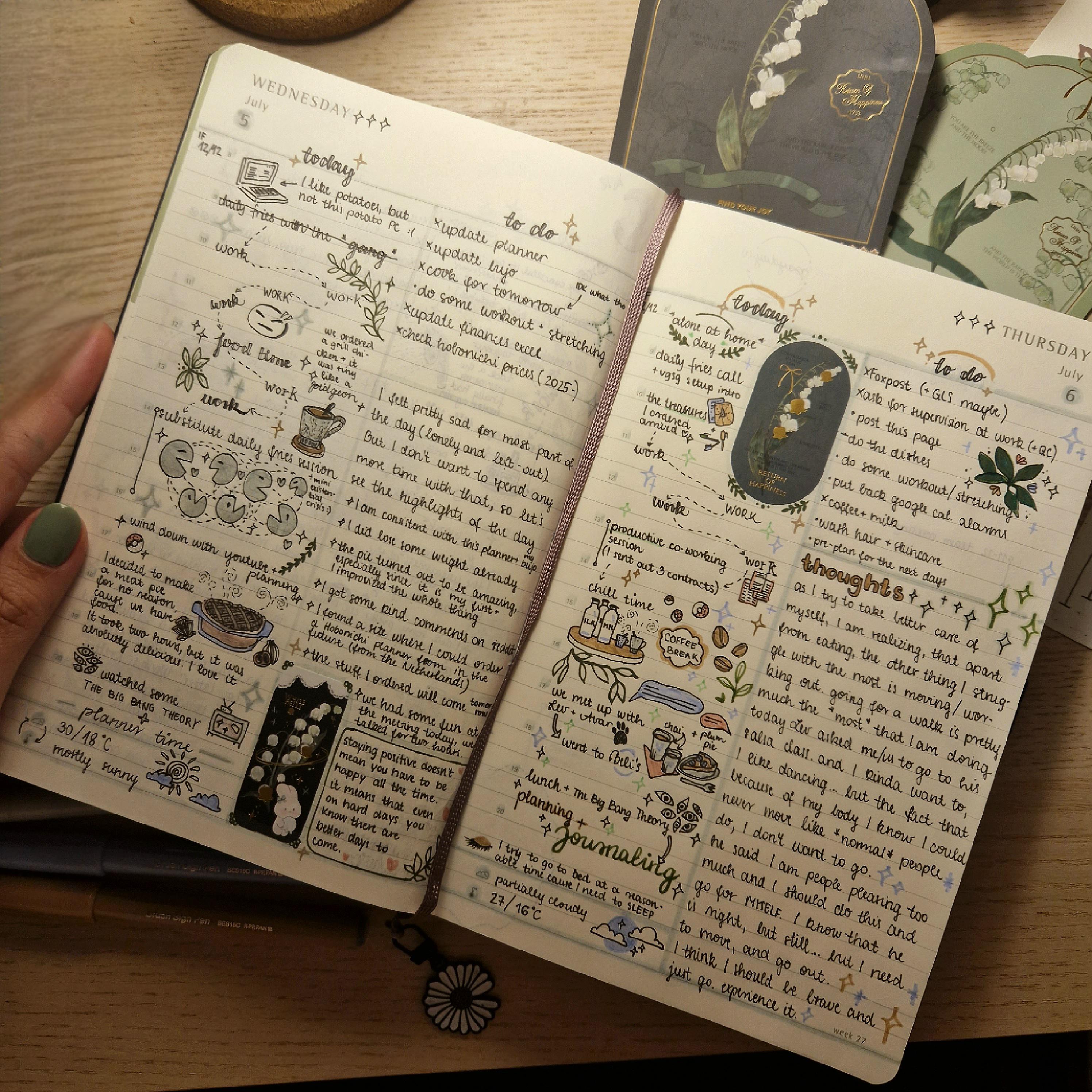
Benefits of Journaling
- AUTHORBrian Russell
- PUBLISHED10-23-2024
The Benefits of Journaling
Date Written: 10-18-2024 - 10-23-2024
In every therapy session I go to, I arrive at precisely twelve o’clock, step outside our family’s 200,000 mile, no-A/C, torn-up-interior Volvo XC-90 , maneuver past a gossamer glass door, wave to my therapist Kyle and sit down. In the process of propping one leg over the other, I open my mind so to speak to the pages of my moleskin journal and dip my hands into its consciousness to find the thoughts, feelings, and behaviors of the week’s adventures, rather, the week’s hibernations. When he asks, and he always asks, “So how are we doing this week?” it isn’t ever a manner of trouble for me to recall turmoil, or something affecting me presently, but to remember the good stuff, I’m talking about the stuff we mull over the nights before, tossing and turning in our hands, refining it with the friction of brainpower until the thought becomes something colossal, acute, or articulate—I find the effort involved lessened to a significant degree when I’ve journaled quite a bit about it and the things I say much more refined and introspective after the fact.
I’d like to think journaling has impacted my life in only positive ways since I started doing it more intensively. From stints at hospitals or psych wards where boredom is commonplace, to sitting at my desk concentrated on some manner of personal disagreement or interlude of cognitive dissonance, I have always found the act of journaling conducts a manner of calm, without a precursor of… well, anything really. With a bit of personal effort I could simply manifest the art myself and only gain from it. Even if I write about the harder things and cry—hell, I could fold over the page and sob into my arms for an hour, I find it to be cathartic and always remedying on its outset.
Now, I will not put effort towards teaching how to journal, it’s simple enough, paper in booklet form (preferably), a pen, and your thoughts. It can be in a format where you answer questions (see passion-planners or guided journals), made with a personalized template you keep around or tack onto the start of your journal (e.g., header & date, three daily highlights, body of journal, plans for the next day, leaving meditation), or it can be completely stream of consciousness. There isn’t really a method past that for me—I just write. I hardly ever re-read my journals to recollect exactly how it “all went down,” my handwriting is much to poor for that. I mainly see the cliff-notes of my efforts for understanding the starts and stops, all that. I suppose this blog entry is an effort to explain for myself why it is I engage and recommend so heavily this habit?

I asked my therapist this question quite intensely one session this past week and his reply came to me as a not a shock, but a realization. “Journaling is like un-bottling.” He said. “It’s like taking the stuff in here, on the inside, and pushing it out onto the page. You and I have both talked about this before, you know we have, about how we don’t really re-read our journals so often, so it sort of is there beating like a heart, but the act of getting it OUT realy relieves us, you know?” I reflected on this, if I gain a level of introspection from this practice, if I find an inner empathy and resolve from it, gain more understanding of my past actions and reactions, then truly why /not/ journal? It seems the only thing to lose is a modicum of privacy and some time, maybe a few stray calories here and there from all the writing.
I admit, if there ever had been a habit I wished to craft more into a routine---it isn’t exercise, it isn’t sleep, it’s being with myself for just a little while in my own /present/ bubble, and existing on the page, dimunitive, with focus and perspective surrounding me.
Next up is a blog entry on Emacs-org.